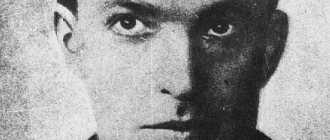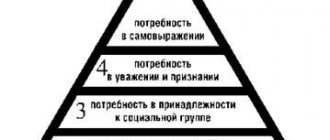The development of psychology in the USSR occurred rapidly and was based on the methodology of Marxism. Lev Vygotsky, an iconic Soviet psychologist, became one of the key figures in Russian psychology thanks to his active support of Marxist ideas. Vygotsky's contributions to psychology are characterized primarily by the founding of the Marxist research tradition that later became known as cultural-historical theory. Vygotsky also studied the characteristics of the child’s cognitive development and pedology, combining the research results into a system of knowledge about the process of formation of the child’s psyche.
Vygotsky's main ideas about personality, child upbringing, and the role of pedagogy
Educational psychology is a branch of psychological science. She studies the features of interaction between student and teacher, the conditions for personality formation in the learning process, and the patterns of mental activity. The formation of educational psychology in the USSR was largely due to the research of Lev Semenovich Vygotsky.
Vygotsky identified the main factors of a child’s mental development:
- social development situation;
- mental neoplasms;
- leading activity.
The social situation is understood as the external and internal conditions of mental development that shape the child’s attitude to the world around him.
Cultural-historical theory is the author’s main work, in which he examines the theory of mental development. In his opinion, one should distinguish between higher (developed as a result of the historical development of society) and lower (appearing in the process of evolution) psychological functions. Vygotsky noted that the main difference between functions is arbitrariness. The lower impulses of the psyche cannot be controlled, but a person consciously controls the higher ones.
The process of reproducing the highest function consists of a chain: stimulus - stimulus-means - reaction. By stimulus-means or sign, Vygotsky understood a method of controlling behavior. Signs are directed inward; a person creates them for himself. Through signs you can switch attention, regulate behavior, and make decisions. Such means include casting lots, counting on fingers, a hidden condition and other methods that help make a choice between several options.
Vygotsky became the founder of Russian psycholinguistics, studying the relationship between thinking and speech. He notes that thinking and speech develop in parallel, but not together. Initially, the development of intelligence occurs in the pre-speech phase, at the same time speech develops in the pre-intellectual phase. From the moment of development of active speaking, speech and thinking intersect. Speech becomes intellectual, and thinking becomes based on speech. The child’s speech functions become the basis for the work of thinking.
Abstract “Scientific activity of L.S. Vygotsky"
MINISTRY OF EDUCATION AND SCIENCE OF THE RUSSIAN FEDERATION FEDERAL STATE BUDGET EDUCATIONAL INSTITUTION OF HIGHER EDUCATION “SOUTH URAL STATE HUMANITIES AND PEDAGOGICAL UNIVERSITY”
Abstract on the discipline:
theory of speech activity
TOPIC: “Scientific activity of L.S. Vygotsky"
Completed by: Poluektova Ulyana Aleksandrovna
Chelyabinsk, 2019
Content:
| 1. | Introduction……………………………………………………… | With. 3 |
| 2. | Biography of L.S. Vygotsky……………………………………. | With. 4-5 |
| 3. | Contribution of L.S. Vygotsky…………………………………………. | With. 6- 8 |
| 4. | School L.S. Vygotsky…………………………………………………………… | With. 9-10 |
| 5. | Conclusion ……………………………….……………………… | With. eleven |
| 6. | Bibliography ……………………………………………… | With. 12 |
| 7. | Application ……………………………………………………… | With. 13 |
Introduction
“It is not difficult to understand that consciousness does not have to be considered biologically, physiologically and psychologically as a second series of phenomena. A place and interpretation must be found for it in the same series of phenomena with all reactions of the body. This is the first requirement for our working hypothesis.”
L.S. Vygotsky [10].
The stages of formation and development of Soviet child psychology are inextricably linked with the historical transformations that began in our country in 1917. No matter how you look at what happened then, justice requires recognizing that in terms of the scale, difficulty and novelty of the tasks that arose in all areas of life, it was an era that, using the words of F. Engels, “needed titans and which gave birth to titans in strength thought, passion and character, in versatility and learning”[3].
In psychology, L. S. Vygotsky became such a person. He built theories of the development of the child’s conscious personality “in the context of a general revolution” and his teaching itself was “thoroughly revolutionary.” The scientific activity of L. S. Vygotsky was aimed at ensuring that psychology could move “from a purely descriptive, empirical and phenomenological study of phenomena to the disclosure their essence."
Without exaggeration, we can say that L. S. Vygotsky did everything to ensure that child psychology became a full-fledged and genuine science, with its own subject, method and laws. It was thanks to Lev Semenovich that science was able to solve the most important practical problems of teaching and raising children, and to take a new approach to the problems of age-related normative diagnostics of mental development.
Biography of Lev Semyonovich Vygotsky
Lev Semenovich Vygotsky is a famous Russian psychologist of the early 20th century who connected psychology with pedagogy. His innovative ideas and concepts in pedagogy and psychology were far ahead of their time.
Years of life of Lev Semenovich Vygotsky: 1896 – 1934. (38 years). Born on November 17, 1896 in Orsha, the second child in a large family of a bank employee. In 1897, the family moved to Gomel, where it became a kind of cultural center (the father was the founder of the public library) [1].
Lev was a gifted boy and was educated at home. From 1912 he completed his studies at a private gymnasium.
In 1914, after graduating from high school, Vygotsky entered the Faculty of Medicine at Moscow State University, and a month later he was transferred to the Faculty of Law and graduated in 1917. At the same time, he received an education at the Faculty of History and Philology of the Shanyavsky University [11].
In 1917, with the beginning of the revolution, the young man returned to Gomel. The Gomel period lasted until 1924 and was the beginning of his psychological and pedagogical activity. Here he marries and has a daughter.
In 1924 he was invited to the Moscow Institute of Experimental Psychology. From that moment on, the Moscow period of the scientist’s family began.
In 1924 – 1925 — created his own cultural and historical psychological school on the basis of the institute. He began to become interested in working with special needs children. Continuing psychological research, he simultaneously worked in the People's Commissar of Education.
Through his efforts, an experimental defectology institute was created in 1926 (now the Institute of Correctional Pedagogy). He headed it until the end of his life. Vygotsky continues to write and publish books. From time to time the illness put him out of action. In 1926 there was a very severe outbreak.
From 1927 – 1931 The scientist published works on the problems of cultural-historical psychology. During these same years, he began to be accused of retreating from Marxism. It became dangerous to study psychology, and Vygovsky devoted himself to pedology [13].
In 1920, Lev contracted tuberculosis from his brother. The disease periodically worsened. On June 11, 1934 he was hospitalized. On the same day, Lev Semenovich died in Moscow from tuberculosis [3].
Many major psychologists around the world responded to Vygotsky’s death. Here are some of the letters and telegrams (in excerpts) that pay tribute to the scientific merits of Lev Semenovich and the scale of his human personality.
Kurt Lewin, one of the greatest psychologists of the 20th century, a German and, since 1933, an American scientist: “Although I personally communicated with Vygotsky for only two weeks, he left indelible marks on me. I received the impression of him as a completely extraordinary person, full of inner gentleness and at the same time full of effective strength, and as a scientist of exceptional rank. It is absolutely indisputable that he was the creator of a large and very productive psychological movement...”
T. A. Vlasova: “We were all amazed by Lev Semenovich’s unprecedented, rare efficiency, which bordered on complete oblivion of the day, night, caring for himself, his health. All this was combined with great spiritual delicacy, caring and evenness in relationships. He was always demanding of himself and others. He could be cheerful, brilliantly witty, cheerful... He could spend hours explaining something to a weak employee who conscientiously wanted to understand this or that situation, but restrained anger seethed in him when scientific vulgarity or an opportunist who had climbed the crest of a wave appeared before him... All Those who knew Lev Semenovich cannot help but note his extraordinary modesty in behavior and in matters of personal well-being...”[13].
Contributions of Lev Semyonovich Vygotsky
The outstanding scientist Lev Semenovich Vygotsky, whose main works are included in the golden fund of world psychology, accomplished a lot in his short life. He laid the foundation for many subsequent trends in pedagogy and psychology; some of his ideas are still awaiting development. Psychologist Lev Vygotsky belonged to a galaxy of outstanding Russian scientists who combined erudition, brilliant rhetorical abilities and deep scientific knowledge [2].
L. S. Vygotsky made the greatest contribution to developmental psychology. The cultural-historical theory of human mental development that he created determined the main approaches and directions of research in domestic and world developmental psychology for decades. The practice of education in our country was built on the ideas of L. S. Vygotsky.
Lev Semyonovich developed and substantiated the “Cultural-historical concept of the development of the psyche and personality development.” The essence of the cultural-historical concept can be expressed as follows: the behavior of a modern cultural person is not only the result of development from childhood, but also a product of historical development [10].
In the process of historical development, not only the external relations of people, the relationship between man and nature changed and developed, man himself changed and developed, his own nature changed. Lev Semenovich said that man, in the process of historical development, rose to the point of creating new driving forces of his behavior. And it was in the process of man’s social life that his new needs arose and developed, and man’s natural needs in the process of his historical development underwent profound changes. Each form of cultural development, cultural behavior, he believed, in a certain sense is already a product of the historical development of mankind [12].
The problem of consciousness became central to the entire history of Soviet psychology. In philosophical terms, consciousness is usually understood as a specific feature of the human psyche, formed in the system of social relations, in work, on the basis of speech and the development of various forms of social consciousness. It emphasizes not only the conditioning of people’s consciousness by their social existence, but also its active role in people’s activities.
L. S. Vygotsky defined the area of his research as “apex psychology” (psychology of consciousness), which contrasts with two others: “superficial” (behavior theories) and “deep” (psychoanalysis). He viewed consciousness as “a problem of the structure of behavior”[11].
L. S. Vygotsky formulated a number of laws of child mental development. Child development has a complex organization in time: its own rhythm, which does not coincide with the rhythm of time, and its own pace, which changes in different years of life. Thus, a year of life in infancy is not equal to a year of life in adolescence.
The law of metamorphosis in child development: development is a chain of qualitative changes “A child is not just a small adult who knows less or can do less, but a being with a qualitatively different psyche.”
The law of uneven child development: each side in the child’s psyche has its own optimal period of development. This law is associated with L. S. Vygotsky’s hypothesis about the systemic and semantic structure of consciousness.
The law of development of higher mental functions. Higher mental functions arise initially as a form of collective behavior, as a form of cooperation with other people, and only subsequently do they become internal individual functions of the child himself.
The development of external mental functions is associated with learning in the broad sense of the word and occurs in the form of assimilation of given patterns. The specificity of child development is that it is not subject to the action of biological laws, as in animals, but to the action of socio-historical laws. The biological type of development occurs in the process of adaptation to nature by inheriting the properties of the species and through individual experience. A person does not have innate forms of behavior in the environment. Its development occurs through the appropriation of historically developed forms and methods of activity[7].
The conditions of development were later described in more detail by A. N. Leontiev.
According to L. S. Vygotsky, the driving force of mental development is learning. It is important to note that development and learning are different processes. According to Lev Semyonovich, the development process has internal laws of self-expression. “Development,” he writes, “is the process of formation of a person or personality, accomplished through the emergence at each stage of new qualities specific to a person, prepared by the entire previous course of development, but not contained in a ready-made form at earlier stages.”
Learning, according to L. S. Vygotsky, is an internally necessary and universal moment in the process of development in a child of not natural, but historical human characteristics. Learning is not the same as development. It creates a zone of proximal development, that is, it brings to life in the child, awakens and sets in motion internal processes of development, which at first are possible for the child only in the sphere of relationships with others and cooperation with friends, but then, permeating the entire internal course of development, they become an asset the child himself [12].
It was L.S. Vygotsky did everything to ensure that child psychology became a full-fledged science, so that this science could solve the most important practical problems of teaching and raising children [11].
School of Lev Semyonovich Vygotsky
The truth of Vygotsky’s theory illuminated not only the misconceptions of the biological development theories of his time, but also warned future generations of scientists against uncritically borrowing an alien scientific worldview.
Today we can say that the three spheres of human existence: feelings, intelligence and behavior are studied in the largest psychological concepts: psychoanalysis, theory of intelligence and behaviorism. The priority in the development of “apex psychology,” or the psychology of the development of consciousness, belongs to cultural-historical psychology [8].
It can rightfully be said that Vygotsky accomplished the task of restructuring psychology on the basis of deep philosophical analysis.
For Vygotsky, the following questions were important: how does a person in his development go beyond the limits of his “animal” nature? How does he develop as a cultural and working being in the course of his social life?
Vygotsky's merit lies in the fact that he was the first to introduce the historical principle into the field of child psychology.
From Vygotsky’s point of view, all contemporary Western theories described the course of child development as a transition from an individual, human-like existence to life as a full-fledged member of society. Vygotsky categorically opposed this interpretation of development. For him, the development process goes from social to individual.
Vygotsky emphasized that the attitude towards the environment changes with age, and therefore the role of the environment in development also changes. He emphasized that the environment should be considered not absolutely, but relatively, since the influence of the environment is determined by the child’s experiences. L.S. Vygotsky introduced the concept of a key experience [6].
In his Lectures on Pedology, Vygotsky formulated a number of laws of the child’s mental development. (Annex 1)
According to Vygotsky, the driving forces of mental development are associated with learning. One of the proofs of the influence of training on a child’s mental development is Vygotsky’s hypothesis about the systemic and semantic structure of consciousness and its development in ontogenesis [9].
For many years, Vygotsky's hypothesis remained a brilliant intuition. Overcoming the shortcomings and historically determined limitations of this hypothesis constitutes the stages of development of child psychology from the position of the cultural-historical paradigm.
The successors of Lev Nikolaevich Vygotsky are: A.N. Leontyev, A.V. Zaporozhets, P.I. Zinchenko, P.Ya. Galperin, L.I. Bozovic and others.
Conclusion
From the above, we can conclude that the world of art and the inner world are harmoniously combined in this great man. On the path of personality development and throughout his life, Vygotsky was able to remain true to himself and his work. Lev Semyonovich Vygotsky, without any doubt, is an outstanding scientist. His contribution to the development of psychology is enormous and invaluable. I would like to note that I have not listed all of his merits, but only the most significant. Many ideas expressed by L.S. Vygotsky remain relevant, and the popularity of his scientific research is still growing, both in domestic and world psychology. Vygotsky’s ideas have become part of the compulsory baggage of psychologists and educators around the world.
Bibliography:
- https://pedsovet.su/publ/188-1-0-5564
- https://fb.ru/article/258434/lev-vyigotskiy-biografiya-foto-i-tvorchestvo
- https://ru.wikipedia.org/wiki/%D0%92%D1%8B%D0%B3%D0%BE%D1%82%D1%81%D0%BA%D0%B8%D0%B9,_ %D0%9B%D0%B5%D0%B2_%D0%A1%D0%B5%D0%BC%D1%91%D0%BD%D0%BE%D0%B2%D0%B8%D1%87
- G.L. Vygotskaya, T.M. Lifanova “Lev Semenovich Vygotsky. Life. Activity. Strokes to the portrait”, M.: Smysl, 1996.
- K. Marx and F. Engels “Works”. 2nd edition. State edition political literature. - M, 1961.
- L.S. Vygotsky The problem of learning and mental development at school age. / Favorites Psychological research. – M. 1956.
- L.S. Vygotsky. Developmental and educational psychology. Collection of articles, M. 1990.
- L.S. Vygotsky. History of the development of higher mental functions. Collection op. In 6 volumes. T.3. – M.: Pedagogy, 1983. – 368 p.
- L.S. Vygotsky. The problem of age. Collection op. v.4. – M., 1984.
- L.S. Vygotsky. Psychology of human development. - M.: Publishing House Meaning; Eksmo, 2005. - 1136 p.
- L.S. Vygotsky. Collected works: In 6 volumes - M., 1982.
- L.F. Obukhova. "Children's (age) psychology." Textbook. Russian pedagogical agency. – M. 1996, – 374 p.
- People of science. A.A. Leontyev, L.S. Vygotsky. Book for students 9-11 grades. avg. school - M.: Education, 1990. - 158 p.
Annex 1
In his Lectures on Pedology, Vygotsky formulated a number of laws of the child’s mental development.
1. Child development has a complex organization in time: its own rhythm, which does not coincide with the rhythm of time, and its own pace, which changes in different years of life. Thus, a year of life in infancy is not equal to a year of life in adolescence. The younger the child, the higher the rate of his development, the more changes occur per unit of time.
2. The law of metamorphosis in child development: development is a chain of qualitative changes. A child is not just a small adult who knows less or can do less, but a being with a psyche that is qualitatively different from an adult.
3. The law of uneven child development: each side in the child’s psyche has its own optimal period of development. Vygotsky’s hypothesis about the systemic and semantic structure of consciousness is connected with this law.
4. The law of development of higher mental functions. Higher mental functions arise initially as a form of collective behavior, as a form of cooperation with other people, and only subsequently do they become internal individual functions of the child himself. Distinctive features of higher mental functions: indirectness, awareness, arbitrariness, systematicity. They are formed during life and are formed as a result of mastering special tools, means developed in the course of historical development. In their development, higher mental functions go through a number of stages.
The formation of psychology in Russia and the USSR: Vygotsky’s contribution
Lev Vygotsky's work in the field of psychology began in 1922, from the moment he began working at the Gomel Technical School. Within a year, he managed to create a laboratory at the technical school and conduct the first experiments, collect the results and prepare them for presentation at a congress of psychoneurologists. Participation in the congress allowed Vygotsky to enroll in graduate school at the Moscow Institute of Experimental Psychology and become the head of a subsection in the department of Social and Legal Protection of Minors. The scientist studied the features of raising children with mental retardation, hearing and vision impairments.
After defending his dissertation, Vygotsky delved into the study of pedagogy. At the first pedological congress, he presented two reports on the development of difficult-to-educate children and the instrumental method in pedology. Based on the reports, he developed the first version of the theory of child development and published four books devoted to problems of development and education.
Together with his colleague and follower Luria, he founded the Vygotsky Circle, a project to study the highest forms of mental activity. From 1930 to 1934 he spoke at conferences, took part in international expeditions, presented a report and a draft book on thinking and speech. The book was published after the author's death.
The scientists who were part of the circle of researchers continued their work even after the death of the professor, preserving and popularizing the results of his research.
Scientific works
While still a student, Vygotsky began publishing articles on literature and Jewish culture in magazines. He was published a lot in the magazines “New Life”, “New Path” and in Gorky’s “Chronicle”
The psychologist paid great attention to the problem of anti-Semitism in Russian literature
After the revolution, Vygotsky left his legal career. He collaborated with Gomel newspapers and magazines and wrote theater reviews. Lev Semenovich taught logic and literature in schools and technical schools, and gave lectures on psychology. The experience of working in educational institutions became a serious impetus for the scientist. Which prompted him to decide to develop psychological theories in pedagogy.
A long-standing interest in culture prompted the creation of one of his most significant works. We are talking about Vygotsky’s book “Psychology of Art”. It was written as a dissertation and was first published only in 1965.
Another seminal work was called “Educational Psychology.” The author analyzed his own teaching experience and developed his scientific theories on its basis. In later works “Thinking and Speech” and “Teachings on Emotions” these ideas find their continuation.
Among the legacy of L. S. Vygotsky are books, monographs, and scientific articles. He managed to publish many works that began to fall under the ban of the Soviet regime during his lifetime. After the death of the scientist, his works were removed from libraries and declared illegal.
Vygotsky's theories found new life only in the late fifties. And after the publication of books abroad, the scientist gained worldwide fame. Until now, his scientific concepts arouse admiration and controversy among his colleagues.
Personality development in the context of pedagogy and psychology
Vygotsky’s main interest was the problems of the development of the psyche in ontogenesis, the formation of personality. For the normal formation of higher mental functions, the timely development of brain structures is not enough. The study of the psychological state of children who grew up in conditions that do not imply social adaptation showed that for the full development of the individual, a social situation of development is necessary. By this term, Vygotsky understood the relationship between the child and society. The type of interaction determines the course of development of the child’s psyche and his ability to overcome age-related crises.
Vygotsky noted that the formation of consciousness occurs through the development of speech. By learning new words and understanding the multiple meanings of words, a child acquires personality traits that are unique to humans. The cultural environment surrounding a child influences his behavior and changes the activity of mental functions. Without training, he receives only part of the natural instincts necessary for survival, but his psyche will remain at the level of a primate.
Numerous cases of Mowgli children raised by animals speak in favor of Vygotsky's theory. Once in society, they are unable to adapt; they lack speech and basic behavioral skills. Education allows you to partially replenish the necessary mental functions, but the full development of personality is impossible.
Mental development is impossible without pedagogy - learning is guided by the individual, helping to achieve maximum development of mental abilities, taking into account the individual characteristics of the child.
This is how the domestic principle of personality development was formed: a person is a product of socio-biological influence, in which the influence of society is recognized as leading.
Cultural-historical theory. The essence
Vygotsky's basic psychological theory began to take shape with his early publications in journals and took its final form in the 1930s. The scientist insisted on considering the social environment in which the child is located as the main factor in personality development.
Lev Semenovich believed that the reason for the crisis of contemporary psychology was that researchers considered only the primitive side of human consciousness, while ignoring higher functions. He distinguished two levels of behavior:
- natural, involuntary, formed through the evolution of biological processes;
- cultural, based on the historical development of human society, controlled.
Vygotsky believed that consciousness has a sociocultural, symbolic nature. Signs are formed by society in a historical context and influence the restructuring of the child’s mental activity. The scientist argued that speech is the most important factor in psychological development. It unites the physical, cultural, communicative and semantic levels of consciousness.
Higher psychological functions with the help of signs (mainly speech) are adopted from the outside and only then become part of a person’s inner world. Vygotsky developed the concept of a social situation of development. It can be stepwise, evolutionary or crisis.
Vygotsky and child rearing: basic postulates
Vygotsky’s educational psychology is based on the principles necessary for the implementation of the learning process:
- Two-way nature of learning. The teacher must structure the learning process so that students have the opportunity not only to absorb knowledge, but also to speak out on the topic of the lesson and develop self-education skills.
- Collaborative activities between teacher and students. The teacher must monitor students' progress and compliance with the curriculum. All explanations must be visual, and practical experience in performing the task must be acquired only under the supervision of a teacher.
- Guidance from the teacher. In the learning process, students must respect the authority of the teacher, recognize his primacy, and strive to imitate. Connivance and indifference on the part of the teacher disrupts the educational process and devalues the role of knowledge in the eyes of students.
- Systematic organization and management. The learning process must be thoughtful and follow a strict plan. If students are ahead of the curriculum or massively behind it, the plan must be changed.
- Integrity and unity. The learning process cannot be chaotic. Knowledge should be conveyed to students consistently and in doses, consolidating the results obtained.
- Compliance with the patterns of age-related development of students. The curriculum should be based on the age characteristics of students and correspond to the zone of proximal development.
- Managing the development and education of students. In addition to the direct transfer of knowledge, the teacher is obliged to monitor the moral level of development of students and the formation of their worldview.
According to Vygotsky’s theory, adherence to these principles will develop the mental abilities of students, help them absorb the necessary amount of knowledge, form a worldview and consolidate self-education skills.
The process of mental development: current and potential body of knowledge according to Vygotsky
According to Vygotsky's theory, learning is effective only when the student successfully masters the previous level of knowledge and moves on to the next with a fixed skill. From the moment of birth, a child has a certain level of actual development and a level of potential development. The first category includes skills that the child already possesses and can use independently without the help of an adult. Vygotsky called the totality of skills the zone of actual development. The second category includes skills that a child can acquire only after training, entering the zone of proximal development.
Training should be structured in such a way as to slightly advance mental development. By gaining experience in joint activities with an adult, the child becomes able to solve similar problems independently.
The desire to teach children skills that go beyond the zone of proximal development leads to a violation of the child’s natural need to learn. Unable to master the proposed amount of knowledge, he becomes disappointed in his abilities and the learning process itself.
Worldwide popularity: the formation of Vygotsky’s personality cult
Based on the works of Vygotsky, the Soviet school of psychology was born, so he can be considered the founder of the development of psychology as a science in the USSR. Ideas drawn from cultural-historical theory led to the creation of modern educational psychology. In the period from the 30s to the 60s of the 20th century, Vygotsky’s authority was not questioned. His educational concept was considered universal, and criticism was not allowed.
The emergence of world psychology also owes much to the influence of Vygotsky. Along with Piaget’s research, his findings on educational methods were used to develop educational psychology in the United States. A modern revision of the history of the formation of pedagogy shows that Vygotsky owes his worldwide popularity to his numerous followers and a somewhat distorted presentation of his main ideas. Researchers believe that the cult of personality was developed intentionally. Excluding the possibility of criticism and rethinking, under the guise of the ideas of a great scientist, information was presented that was beneficial for the development of the political system.
Vygotsky's ideas in the modern world
The fate of Vygotsky's legacy was very peculiar. In the USSR, the psychologist was elevated to a pronounced cult; it was emphasized that Vygotsky was the person who first approached psychology from a truly Marxist position. However, the real content of Vygotsky’s works was often not taken into account or distorted. The Soviet cult of Vygotsky in psychology replaced scientific activity as such.
And in this regard, it seems unexpected that since the 1970s, American psychologists began to show great interest in Vygotsky. Soon Vygotsky in the Western world began to be considered one of the luminaries of modern psychology. Modern psychological education in the USA is based on the works of Vygotsky; in addition, Vygotsky’s teaching formed the basis of social constructivism that emerged in the United States.
However, Vygotsky received a kind of cult there too. Many psychologists appeared who called themselves his followers, but in fact it turned out that they accidentally or deliberately distorted his ideas and falsified his writings.
In connection with this universal cult of the Soviet psychologist, a certain opposite movement arose in world science, setting the task of “debunking” his teaching. Initially, such works appeared in post-Soviet Russia, and later they began to appear abroad.
Among such works, there are also some compromise points of view. Their authors argue that Vygotsky was not the “genius of Marxism in psychology,” as Soviet ideology described him; and he was a highly educated man, an intellectual and a man of his time, who assimilated ideas that were modern for his era, which were even “fashionable.” Vygotsky developed these ideas and applied them in new, unexpected areas, but he did not offer anything fundamentally new.
The exaltation of Vygotsky in Soviet ideology was far from unique. Many Soviet scientists, writers and thinkers suffered the same fate. Among them was I.P. Pavlov, under whose “banner” Soviet officials “debunked” “bourgeois” scientific concepts. As a matter of fact, Vladimir Lenin himself underwent the same canonization in the USSR. Starting from the accession of Stalin, the Soviet government turned sharply away from the “Leninist” path and in most cases contradicted this path; however, the cult of the “leader of the world proletariat” persisted and deepened: he was depicted on thousands of posters, hundreds of monuments were erected to him throughout the country and abroad, his name was mentioned in the Soviet anthem, in the constitution, etc.
Considering the current situation with the cult of Vygotsky, in recent years a large-scale non-profit scientific publishing project “PsyAnima Complete Works of Vygotsky” has been launched. Thanks to this project, many of the works of the outstanding psychologist became available to the general public, in their original form - without censorship edits, distortions, or falsifications. Research work has also intensified: Vygotsky’s authentic legacy, which has become accessible, has begun to be studied by modern specialists.
Alternative vision and criticism of ideas
In the USSR, attempts to criticize Vygotsky’s teaching began back in the 60s of the 20th century. At the same time, there was no direct ban on the publication of critical works: they were published, but were not considered in scientific circles. In an atmosphere of silence and ignorance of alternative points of view, Vygotsky remained a great innovator who had many followers, but no competitors or associates.
In the 90s, critical articles trying to debunk the myth that Vygotsky was chosen began to be published in separate collections. Gradually, a separate movement was formed, opposed to Vygotsky studies. His followers revised not only the scientist’s ideas, but also tried to challenge their authorship. According to some researchers, most of the works published under the name of Lev Vygotsky actually belong to other people. Re-evaluating Vygotsky’s contribution not only helps restore global historical justice, but also works for the development of modern psychology, ridding it of imposed postulates and “innovations” introduced to maintain a given political course.










